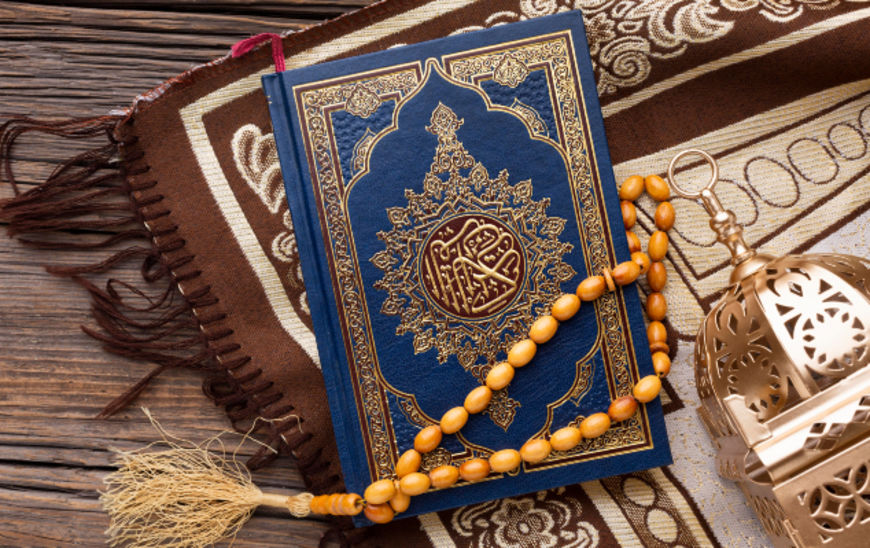
Ayatul Kursi, also known as the Throne Verse, is one of the most revered verses in the Quran. It is part of Surah Al-Baqarah (Chapter 2, Verse 255) and holds a significant place in the hearts of Muslims worldwide. Known for its profound meaning and spiritual benefits, Ayatul Kursi is regarded as the "Greatest Verse" in the Quran. In this article, we will delve deep into the various aspects of Ayatul Kursi, including its meaning, the benefits of reciting it, and the best times for its recitation.
What is Ayatul Kursi?
Ayatul Kursi is a verse from the second chapter of the Quran, Surah Al-Baqarah. Its words are believed to offer divine protection and blessings, and it is often recited by Muslims for various spiritual purposes. The term "Ayatul Kursi" translates to the "Verse of the Throne," where "Kursi" (throne) symbolizes Allah's authority and power over the heavens and the earth. The verse is significant not only for its meaning but also for its beauty, as it encapsulates the essence of monotheism, Allah's sovereignty, and His all-encompassing knowledge.
Ayatul Kursi – Arabic, Transliteration, and English Translation
For those interested in understanding Ayatul Kursi fully, it is essential to look at its original Arabic text, transliteration, and English translation.
Arabic Text:
اللَّهُ لَا إِلَٰهَ إِلَّا هُوَ الْحَيُّ الْقَيُّومُ ۚ لَا تَأْخُذُهُ سِنَةٌ وَلَا نَوْمٌ ۚ لَهُ مَا فِي السَّمَاوَاتِ وَمَا فِي الْأَرْضِ ۗ مَنْ ذَا الَّذِي يَشْفَعُ عِنْدَهُ إِلَّا بِإِذْنِهِ ۚ يَعْلَمُ مَا بَيْنَ أَيْدِيهِمْ وَمَا خَلْفَهُمْ ۖ وَلَا يُحِيطُونَ بِشَيْءٍ مِنْ عِلْمِهِ إِلَّا بِمَا شَاءَ ۚ وَسِعَ كُرْسِيُّهُ السَّمَاوَاتِ وَالْأَرْضَ وَلَا يَئُودُهُ حِفْظُهُمَا ۚ وَهُوَ الْعَلِيُّ الْعَظِيمُ
Transliteration:
Allahu la ilaha illa huwa, Al-Hayyul-Qayyum. La ta'khudhuhu sinatun wa la nawm. Lahu ma fis-samawati wa ma fil-ardh. Man tha allathee yashfa'u 'indahu illa bi-idhnihi? Ya'lamu ma bayna aydeehim wa ma khalfahum, wa la yuhituna bishay-in min 'ilmihi illa bima sha'a, wasi'a kursiyyuhus-samawati wal-ardh, wa la ya'uduhu hifdhuhuma, wa huwa al-'Aliyyu al-'Azheem.
English Translation:
"Allah! There is no deity except Him, the Ever-Living, the Sustainer of [all] existence. Neither drowsiness overtakes Him nor sleep. To Him belongs whatever is in the heavens and whatever is on the earth. Who is it that can intercede with Him except by His permission? He knows what is before them and what will be after them, and they encompass not a thing of His knowledge except for what He wills. His Kursi (throne) extends over the heavens and the earth, and their preservation tires Him not. And He is the Most High, the Most Great."
Why is Ayatul Kursi Called the Greatest Verse in the Quran?
Ayatul Kursi is called the Greatest Verse in the Quran for several profound reasons:
- Affirmation of Tawheed (Oneness of Allah): This verse highlights the concept of monotheism, declaring that Allah alone is the Sustainer and Creator of all that exists. There is no one equal to Him, nor does He need rest or sustenance.
- Description of Allah’s Attributes: Ayatul Kursi describes several of Allah’s attributes, such as Al-Hayy (the Ever-Living), Al-Qayyum (the Sustainer), Al-‘Aliyy (the Most High), and Al-‘Azheem (the Most Great). These names encapsulate Allah's power, wisdom, and presence.
- Power and Authority Over All Creation: Allah's authority is absolute, and His throne encompasses the heavens and the earth. This signifies His ability to control, sustain, and protect all creation.
- Divine Knowledge and Wisdom: Ayatul Kursi reveals that Allah’s knowledge is boundless. He knows everything in the past, present, and future, and nothing is hidden from Him. This reinforces the concept of Allah’s omniscience.
The Prophet Muhammad (peace be upon him) described Ayatul Kursi as the greatest verse in the Quran because it beautifully summarizes the essence of Islamic belief in one God. It is also said that the verse provides immense protection from harm, evil, and the whisperings of the devil.
The Benefits of Ayatul Kursi
Reciting Ayatul Kursi is believed to bring numerous spiritual and worldly benefits to those who recite it with faith and understanding. Some of these benefits include:
- Protection from Evil and Harm: Ayatul Kursi is known to shield the reciter from evil forces, negative energy, and any harm. Muslims often recite it as a protection against danger, especially before sleeping or when feeling vulnerable.
- Enhanced Memory and Wisdom: It is believed that regular recitation of Ayatul Kursi can help improve memory and understanding, aiding the individual in their pursuit of knowledge and wisdom.
- Divine Blessings: Reciting Ayatul Kursi brings blessings upon one’s home, family, and daily life. It fosters an environment filled with peace, serenity, and positivity.
- Ease in Daily Affairs: Muslims believe that the blessings of Ayatul Kursi can help ease challenges in one’s personal and professional life, making things fall into place smoothly.
- Intercession on the Day of Judgment: According to some Islamic narrations, reciting Ayatul Kursi regularly will help the believer, providing them with intercession and support.
- Increased Spiritual Awareness: Reciting Ayatul Kursi brings the reciter closer to Allah, enhancing their sense of spirituality, mindfulness, and piety.
The Amber Rosary: Significance and Benefits in Reciting Ayatul Kursi
Using a rosary, especially an amber rosary, is common in Islamic tradition to help count recitations of Ayatul Kursi and other supplications. The rosary, known as tasbih or misbaha, typically has 33 or 99 beads, representing the 99 names of Allah or the recommended number of recitations of certain phrases in Islamic practice. Amber rosaries hold a unique place among rosaries due to their natural origin, beauty, and potential health benefits.
Significance of Using a Rosary for Recitation
For centuries, Muslims have used rosaries to facilitate dhikr or remembrance of Allah. The act of counting beads allows the user to maintain focus, enhance their meditation, and ensure the correct number of repetitions, especially in structured recitations. This is especially beneficial with verses like Ayatul Kursi, where intention and concentration are paramount.
Why Amber Rosaries are Unique
Amber, a fossilized resin, is prized for its beauty, tactile warmth, and organic composition. Here are some reasons why amber rosaries are especially valued:
- Natural Appeal and Comfort: Amber is warm to the touch and has a smooth, pleasant texture, making it comfortable to hold during extended recitation sessions. Its gentle scent and warmth add to the meditative experience, making the act of dhikr more immersive.
- Healing and Calming Properties: Amber has long been associated with natural healing. Some believe amber helps relieve stress, increase focus, and alleviate anxiety—qualities that are helpful during prayer and meditation. This aligns well with the calming and protective intentions behind reciting Ayatul Kursi.
- Symbol of Spiritual and Natural Connection: Amber's organic origins connect nature and Allah's creation. Using an amber rosary for Ayatul Kursi may inspire a deeper appreciation of the world and encourage spiritual mindfulness.
Ayatul Kursi, the Greatest Verse in the Quran, holds immense significance in Islamic teachings. Its message of Allah's omnipotence, wisdom, and mercy continues to inspire Muslims worldwide, offering both protection and spiritual fulfillment. Reciting Ayatul Kursi brings numerous blessings, making it an essential part of daily Islamic practice.




 Jewelry
Jewelry Silver amber jewelry
Silver amber jewelry Amber pictures
Amber pictures Souvenirs
Souvenirs